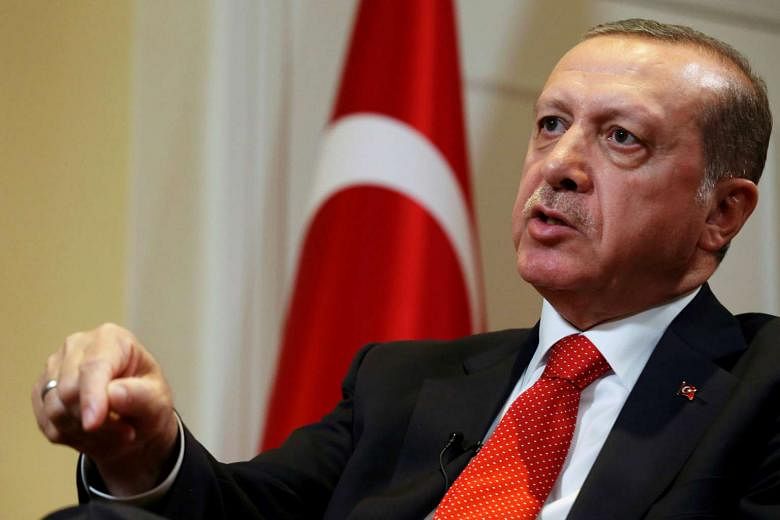ISTANBUL (AFP) - Turkey's ruling party on Saturday (Dec 10) submitted a parliamentary bill that would dramatically expand the powers and possibly the tenure of President Recep Tayyip Erdogan, a move his opponents fear will lead to one-man rule.
If approved, the 21-article constitutional change would see Turkey switch from a parliamentary system to an executive presidency, along the lines of the United States or France.
"The president is head of state. The executive power belongs to the president," according to a draft of the text.
The Bill was presented to parliament after months of talks between the ruling Justice and Development Party (AKP) and opposition Nationalist Movement Party (MHP).
"This is a compromise text," AKP's MP Abdulhamit Gul said in a televised speech.
"We have full confidence that the proposal will be approved (in parliament) with very strong support and put to the vote of the people," he added, alongside a MHP legislator.
The MHP is the fourth largest party in parliament but the AKP needs its support for the 330 votes required to call a referendum to approve the issue.
If approved, Turkey would head to general and presidential elections in November 2019.
The draft law says the president would be elected for a five-year term and be elected twice. If Erdogan's existing time as president is not counted in this, it means that in theory he could stay in office until 2029.
The president will also appoint one or more vice-presidents.
"The vice-president and ministers shall be responsible to the president," the text says.
However, it was not clear if the office of the prime minister would be scrapped.
Prime Minister Binali Yildirim told reporters that the reform would end "confusion" and "strengthen both the parliament and the executive." He said he would make a detailed statement on Sunday.
Erdogan, 62, became Turkey's first popularly elected president in August 2014, after more than a decade as premier.
He immediately revamped an office which had until then been seen as largely ceremonial.
Addressing an Istanbul rally before the Bill was presented to parliament, Erdogan said he hoped it would receive enough votes in the 550-seat parliament to enable it to be put to a referendum.
"God willing, it will be the beginning of a new era," Erdogan said.
The AKP has only 316 seats (excluding the speaker of the parliament) and needs at least 14 votes from the MHP to secure a three-fifths majority required to call the referendum.
Deputy Prime Minister Nurettin Canikli said on Friday a referendum could take place in March, April or May.
The main opposition Republican People's Party (CHP) and the pro-Kurdish Peoples' Democratic Party (HDP) vehemently oppose changing the parliamentary system.
HDP co-leader Selahattin Demirtas, who launched a political campaign to oppose the new system, is under arrest on charges of terror group links along with nine fellow HDP MPs.
CHP leader Kemal Kilicdaroglu on Friday said the changes risked wrecking the parliamentary system, adding: "This is a regime change, not a system change."

